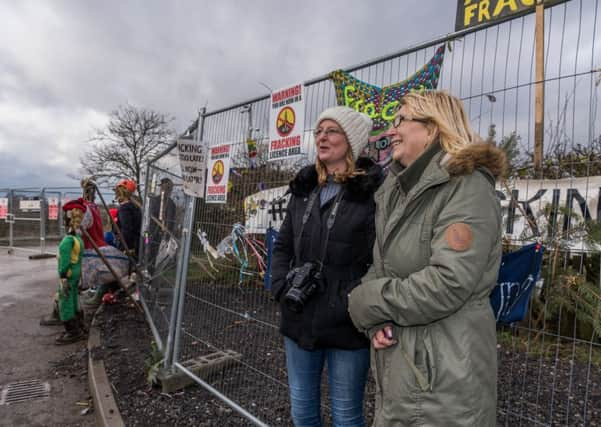Research could call fracking's environmental claims into doubt


Ethane and propane are particularly harmful in large cities where, through chemical reactions with emissions from cars, they form ozone – a greenhouse gas which is a key component of smog and directly linked to increases in mortality.
They escape into the air from leaks during natural gas extraction, including from shale gas extraction - fracking. This new study shows that global fossil fuel emissions of these hydrocarbons have been underestimated and are two to three times higher than previously thought.
Advertisement
Hide AdAdvertisement
Hide AdThe authors, from York, Oslo and Colorado, are now calling for further investigation into fossil fuel emissions of methane, a potent greenhouse gas which is emitted along with ethane and propane from natural gas sources.
Co-author Professor Lucy Carpenter from the Department of Chemistry at the University of York, said: “We know that a major source of ethane and propane in the atmosphere is from ‘fugitive’ or unintentional escaping emissions during fossil fuel extraction and distribution. If ethane and propane are being released at greater rates than we thought, then we also need to carefully re-evaluate how much of the recent growth of methane in the atmosphere may also have come from oil and natural gas development. The current policy case for fracking, for example, is partly based on the belief that it is less polluting that coal.”
When ethane and propane mix with nitrogen oxides from vehicles and power plants they form ozone in the troposphere – the lowest layer of the atmosphere that constitutes the air we breathe, which damages human health.
Co-author, York professor Ally Lewis the effects would also be felt in the rural environment where it damages crops and plants. She said: “Tropospheric ozone causes a variety of serious health complaints and along with particulate matter and nitrogen dioxide is one of the three major causes of pollution-related deaths.”